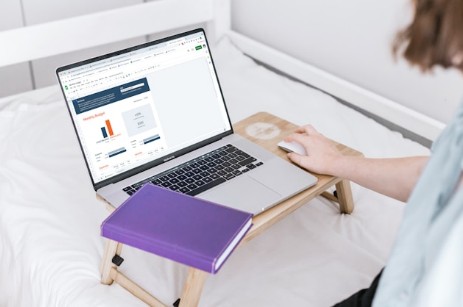Budgeting is a fundamental aspect of financial management that often gets overlooked. For beginners, creating and sticking to a budget can seem daunting, but with the right tips and techniques, it becomes an empowering tool that can lead to financial stability and success. Michael L. Niemczyk discusses below the essentials of budgeting, offering practical advice on how to manage your money effectively.
Understanding the Importance of Budgeting
Before diving into the how-to of budgeting, it’s crucial to understand why budgeting is important. A well-planned budget helps you:
- Track income and expenses
- Prevent overspending
- Save for future goals
- Reduce financial stress
- Prepare for emergencies
By maintaining a budget, you gain control over your finances, allowing you to make informed decisions and avoid the pitfalls of unmanaged spending.
Steps to Create a Budget
Assess Your Income
Begin by calculating your total monthly income. This includes your salary, any side income, and other sources of money. Knowing your income helps you determine how much you can afford to spend and save.
List Your Expenses
Categorize your expenses into fixed and variable. Fixed expenses include rent/mortgage, utilities, insurance, and loan payments—costs that remain constant each month. Variable expenses include groceries, entertainment, dining out, and other discretionary spending. Don’t forget to account for irregular expenses like annual insurance premiums or holiday gifts.
Set Financial Goals
Identify short-term and long-term financial goals. Short-term goals might include saving for a vacation or paying off a small debt, while long-term goals could involve building an emergency fund, buying a house, or planning for retirement. Having clear goals will motivate you to stick to your budget.
Allocate Your Income
Divide your income into categories based on your expenses and financial goals. A popular method is the 50/30/20 rule:
- 50% for needs (rent, utilities, groceries)
- 30% for wants (entertainment, dining out)
- 20% for savings and debt repayment
Adjust these percentages based on your personal situation and goals.
Track Your Spending
Use budgeting apps, spreadsheets, or a simple notebook to record your daily expenses. Tracking your spending helps you see where your money is going and identify areas where you can cut back.
Review and Adjust
At the end of each month, review your budget and compare it to your actual spending. Adjust your budget as needed to better align with your spending patterns and financial goals. Flexibility is key to maintaining a realistic and effective budget.
Tips for Sticking to Your Budget
Automate Savings
Set up automatic transfers to your savings account. This ensures you save a portion of your income before you have a chance to spend it. Treat savings like any other fixed expense.
Use Cash for Discretionary Spending
Withdraw cash for categories like groceries and entertainment. When the cash is gone, you know you’ve reached your limit for that category. This method helps curb overspending and keeps you within budget.
Avoid Impulse Purchases
Before making a non-essential purchase, wait 24 hours. This cooling-off period allows you to evaluate whether the purchase is necessary or just an impulse. More often than not, you’ll find you can do without it.

Find Budget-Friendly Alternatives
Look for ways to enjoy life without breaking the bank. Cook at home instead of dining out, borrow books from the library instead of buying, or explore free entertainment options in your community.
Keep an Emergency Fund
Life is unpredictable, and unexpected expenses can derail your budget. Aim to build an emergency fund covering three to six months of living expenses. This financial cushion provides peace of mind and prevents debt accumulation during emergencies.
Stay Motivated
Regularly remind yourself of your financial goals and the benefits of budgeting. Celebrate small milestones to keep motivated. Whether it’s paying off a credit card or reaching a savings target, acknowledging your progress reinforces good habits.
The Impact of Good Budgeting Habits
Developing and maintaining good budgeting habits has a profound impact on your financial stability and overall well-being. Here are some benefits:
Financial Security: A budget helps ensure you live within your means and save for the future, reducing financial anxiety.
Debt Reduction: By allocating funds for debt repayment, you can systematically pay off debts and avoid high-interest charges.
Goal Achievement: With a budget, you can prioritize and fund your financial goals, making them more attainable.
Preparedness: An emergency fund, built through disciplined budgeting, prepares you for unexpected financial challenges.
In conclusion, budgeting is an essential skill that everyone should master. By following these steps and tips, beginners can create and stick to a budget, paving the way for financial stability and success. Remember, the key to effective budgeting is consistency and flexibility. Start today and take control of your financial future.
